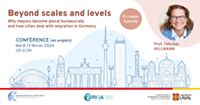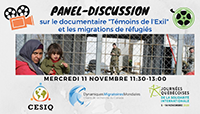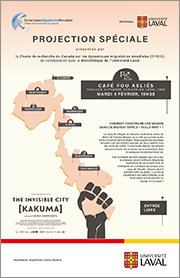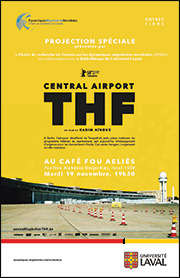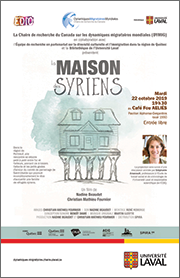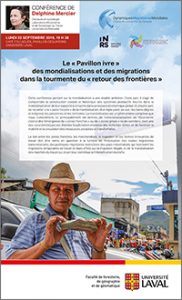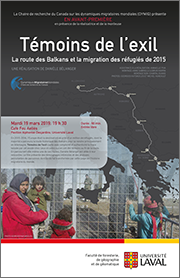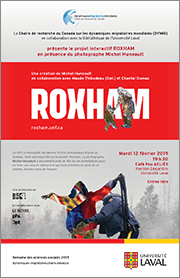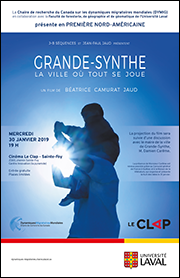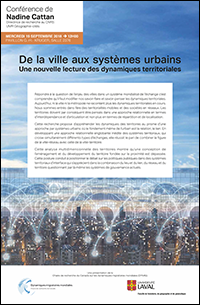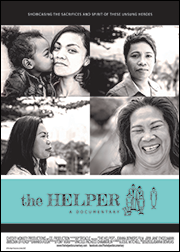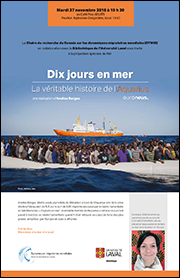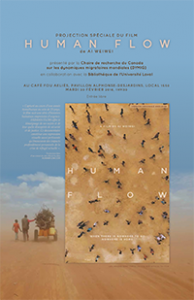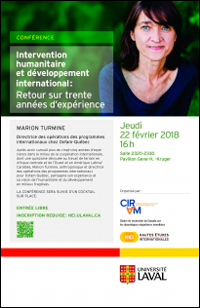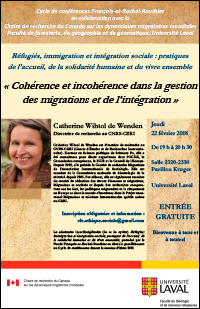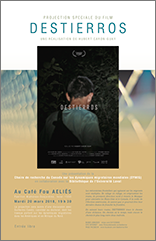Archives
| 2024 | |
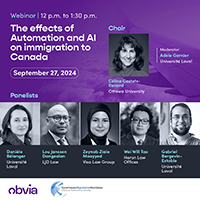 |
Les effets de l’automatisation et de l’IA sur l’immigration au Canada / The effects of Automation ans AI on immigration to CanadaUne table ronde de chercheurs et de professionnels de l’immigration Vendredi, 27 septembre 2024 * À noter que les interventions pendant l’événement se dérouleront en anglais. La gestion de l’immigration au Canada est en voie d’être profondément transformée. Les infrastructures de big data, l’intelligence artificielle (IA) et les outils de prise de décision automatisés promettent d’éliminer les retards, de réduire les délais d’attente, d’éviter les erreurs administratives et d’assurer une évaluation plus rapide et plus équitable des demandes de ceux qui souhaitent franchir les frontières canadiennes. La détermination de « qui peut entrer » étant de plus en plus assistée par l’automatisation, une spirale de changements rapides et profonds a modifié la relation à l’immigration et pour les candidats à l’immigration dont le parcours de vie pourrait être affecté. Quels sont les effets de l’introduction de systèmes d’aide à la décision dans l’analyse des dossiers d’immigration sur les candidats à l’immigration? Comment l’introduction de ces outils affecte-t-elle le rôle des acteurs tels que les universités, les employeurs, l’industrie de la migration? Cette table ronde abordera ces questions. Il s’agira du séminaire de lancement de la série de séminaires IMM-AIA. Il réunira des avocats et des consultants en immigration canadiens à l’avant-garde de ces transformations ainsi que des chercheurs de la Chaire de recherche du Canada sur les processus migratoires mondiaux et des membres de l’équipe du projet « Le nouveau visage de la gestion des migrations au Canada : Numérisation, automatisation et IA » financé par le Conseil de recherches en sciences sociales du Canada. |
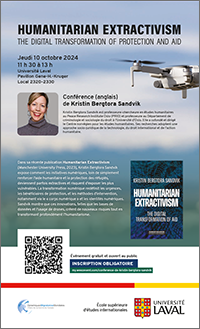 |
Humanitarian Extractivism: the digital transformation of protection and aidConférence (en anglais) de Kristin Bergtora Sandvik Jeudi 10 octobre Événement gratuit et ouvert au public Kristin Bergtora Sandvik (S.J.D Harvard Law School 2008) is a professor of legal sociology at the Faculty of Law, University of Oslo and a Research Professor in Humanitarian Studies at PRIO. Her work focuses on refugee resettlement, legal mobilization and the quest for accountability in the humanitarian sector. Discussing her book ‘Humanitarian Extractivism’ (published by Manchester University Press 2023) Professor Sandvik argues that digital initiatives aimed towards ‘fixing’ the humanitarian system and refugee management also create risk and harm for vulnerable individuals and communities. The digital transformation also impacts what is seen as an emergency, who should be protected and how. At the heart of the digital transformation is the rise of the digital body and digital identity as prerequisites for receiving aid and protection. Humanitarians may inadvertently create their own targets, for example when they begin registering undocumented migrants or when they employ drones in compromised airspace. The growth of humanitarian databases operated through AI further centralizes vulnerability. Cyber-attacks, human error and technological problems generate risks for aid workers, but also for communities and their members. At the same time, technology changes humanitarian and protection work, for example giving rise to innovation programs, digital refugee lawyering and the recruitment of mis and disinformation officers. |
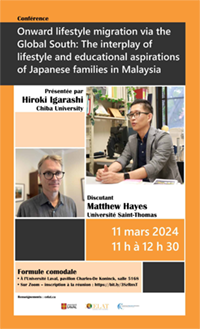 |
Onward lifestyle migration via the Global South: The interplay of lifestyle and educational aspirations of Japanese families in MalaysiaConférence de Hiroki Igarashi, en présence de Matthew Hayes Lundi 11 mars 2024 Résumé de la présentation de Hiroki Igarashi Notices biographiques Matthew Hayes is professor of sociology and Canada Research Chair in Global and Transnational Studies at St. Thomas University in Fredericton. He is the author of Gringolandia: Lifestyle Migration under Late Capitalism (University of Minnesota Press). His research looks at the material and cultural contexts of transnational lifestyle migration from high-income to low-income countries. His work is published in English, French and Spanish. Cette conférence est une présentation conjointe de la Chaire de recherche du Canada sur les dynamiques migratoires mondiales et du CELAT. |
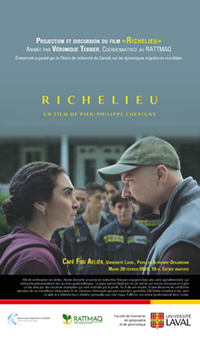 |
Projection du film Richelieu (suivi d’une discussion)Un film de Pier-Philippe Chevigny Mardi 20 février à 19h Discussion animée par Véronique Tessier, coordonnatrice au RATTMAQ Résumé : |
|
|
Beyond scales and levels : why mayors become glocal bureaucrats and how cities deal with migration in Germany (in English)Conférence de Prof. Felicitas Hillmann Mardi 13 février 2024, 12 h à 13 h En mode hybride Abstract : Résumé : Cette conférence est une présentation de la Chaire de recherche du Canada sur les dynamiques migratoires mondiales en collaboration avec l’ÉRIQA. |
| 2023 | |
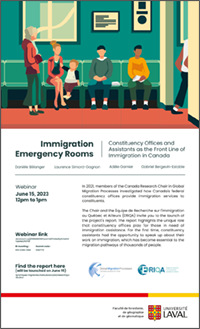
|
Immigration Emergency RoomsConstituency Offices and Assistants as the Front Line of Immigration in Canada June 15, 2023 In 2021, members of the Canada Research Chair in Global Migration Processes investigated how Canada’s federal constituency offices provide immigration services to constituents. The Chair and the Équipe de Recherche sur l’Immigration au Québec et Ailleurs (ERIQA) invite you to the launch of the project’s report. The report highlights the unique role that constituency offices play for those in need of immigration assistance. For the first time, constituency assistants had the opportunity to speak up about their work on immigration, which has become essential to the migration pathways of thousands of people. |
Archives


